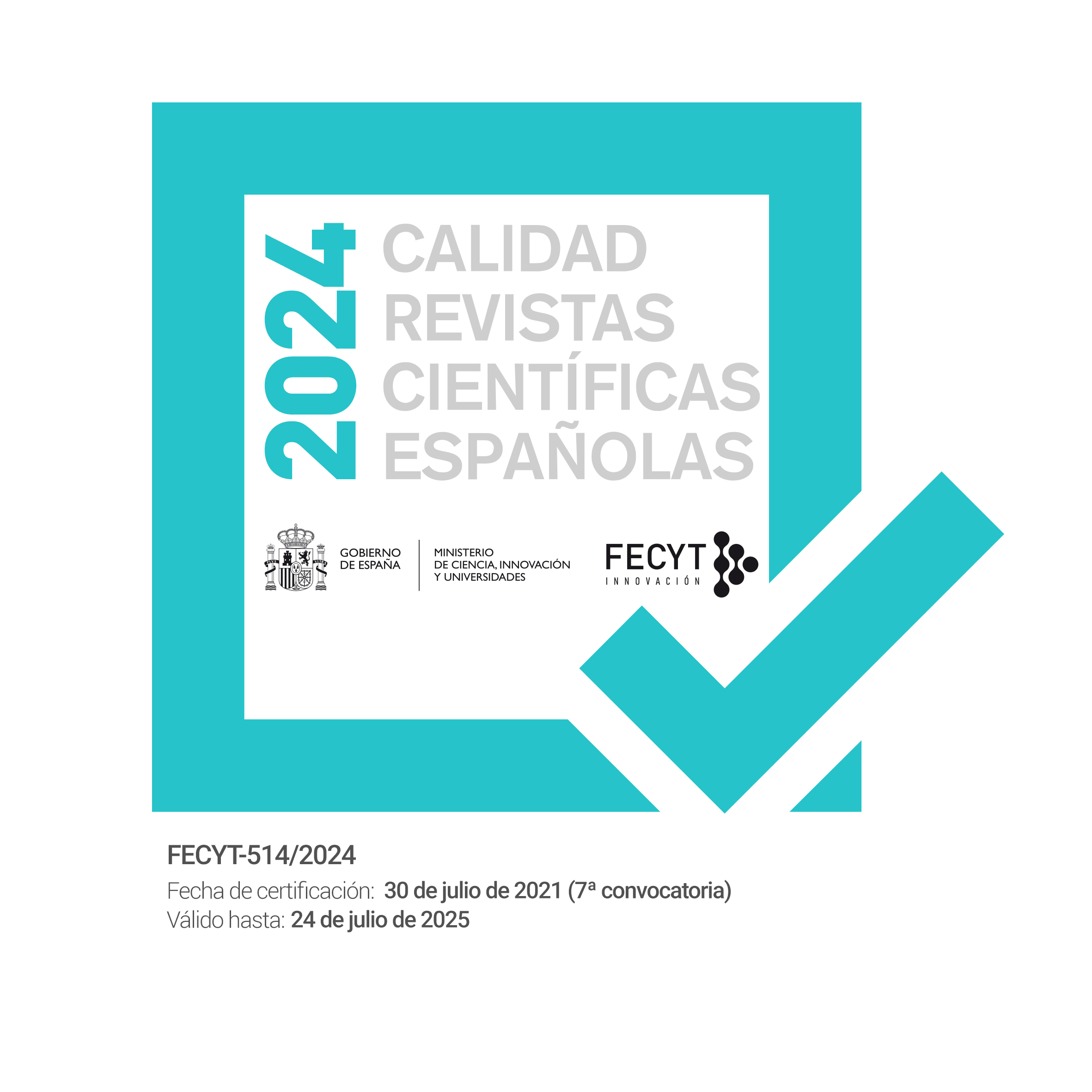Narrating the Fourth Industrial Revolution
Transhumanism and Critical Posthumanism in Catherine Lacey's The Answers
DOI:
https://doi.org/10.12795/REN.2022.i26.10Keywords:
Fourth Industrial Revolution, Transhumanism, Critical posthumanism, Embodiment, Speculative fiction, FeminismAbstract
Recent scientific breakthroughs under the wing of the Fourth Industrial Revolution, particularly in the realm of biotechnology, have prompted an integral redefinition of the human, looking toward the posthuman state. Stances on this question range from the transhumanists’ advocacy of overcoming biological limits, to the indexing of technoscientific advancement to an antihumanist and postanthropocentric project championed by critical posthumanism. These debates have been translated into speculative fiction works such as Catherine Lacey’ The Answers (2017). This novel revolves around the Girlfriend Experiment, a state-of-the-art research project aimed at taking the next step in our emotional evolution by eliminating the need for romantic relationships, bankrolled by a film industry mogul. This paper analyses the representation of human enhancement in the novel, arguing that the depiction of the material consequences of the experiment upon its research subjects amounts to a rejection of the unrestricted development of technology along transhumanist and neoliberal tenets. In this, The Answers offers a critical take on the Fourth Industrial Revolution aligned with the principles of critical posthumanism.
Downloads
References
AARSETH, Epsen J. “Non-Linearity and Literary Theory.” The New Media Reader. Edited by Nick Montfort, and Noah Wardrip-Fruin. The MIT Press, 1994.
ALAIMO, Stacy. “Transcorporeality.” Posthuman Glossary. Edited by Rosi Braidotti, and Maria Hlavajova. Bloomsbury, 2018.
BOOKER, M. Keith. The Dystopian Impulse in Modern Literature: Fiction as Social Criticism. Greenwood Press, 1994.
BOSTROM, Nick. “In Defense of Posthuman Dignity.” Bioethics vol. 19, no. 3, 2005, pp. 202-214.
---. “Transhumanist Values.” Review of Contemporary Philosophy, vol. 4, 2005, pp. 3-14.
BRAIDOTTI, Rosi. The Posthuman. Polity, 2013.
---. Posthuman Knowledge. Polity, 2019.
COOPER, Melinda. Life as Surplus: Biotechnology and Capitalism in the Neoliberal Era. University of Washington Press, 2008.
COOPER, Melinda, and Cathy Waldby. Clinical Labor. Duke University Press, 2014.
FERRANDO, Francisca. “Posthumanism, Transhumanism, Antihumanism, Metahumanism, and New Materialisms: Differences and Relations.” The Karl Jaspers Society of North America, vol. 8, 2014, pp. 26-32.
FM-2030. Are You a Transhuman?: Monitoring and Stimulating Your Personal Rate of Growth in a Rapidly Changing World. Warner Books, 1989.
FUKUYAMA, Francis. Our Posthuman Future: Consequences of the Biotechnology Revolution. Picador, 2003.
HARAWAY, Donna. ”Manifesto for Cyborgs: Science, Technology, and Socialist Feminism in the 1980s.” Socialist Review, vol. 80, 1985, pp. 65-108.
HAYLES, Katherine. How We Became Posthuman: Virtual Bodies in Cybernetics, Literature, and Informatics. University of Chicago Press, 2008.
---. “Wrestling With Transhumanism.” H+/- Transhumanism and its Critics. Edited by Gregory R. Hansell and William Grassie. Metanexus, 2011.
KURZWEIL, Ray. The Singularity is Near: When Humans Transcend Technology. Viking, 2005.
LACEY, Catherine. The Answers. Granta Books, 2017.
MORE, Max. “The Philosophy of Transhumanism.” The Transhumanist Reader: Classical and Contemporary Essays on the Science, Technology, and Philosophy of the Human Future. Edited by Max More and Natasha Vita-More. Wiley-Blackwell, 2013.
---. “Transhumanism: Toward a Futurist Philosophy.” Extropy, no. 6, 1990, pp. 6-12.
NAYAR, Pramod K. Posthumanism. Polity, 2014.
RAPPIS, Sydney. “Catherine Lacey’s Novel Experiments.” Interview Magazine, June 7, 2017 https://www.interviewmagazine.com/culture/catherine-lacey.
RIFKIN, Jeremy. The Biotech Century: Harnessing the Gene and Remaking the World. Putnam, 1999.
SANDEL, Michael J. The Case against Perfection: Ethics in the Age of Genetic Engineering. Harvard University Press, 2007.
SCHWAB, Klaus. The Fourth Industrial Revolution. World Economic Forum, 2016.
TIROSH-SAMUELSON, Hava. “Engaging Transhumanism.” H+/- Transhumanism and Its Critics. Edited by Gregory R. Hansell and William Grassie. Metanexus, 2011, pp. 19-54.
TRAPS, Yevgeniya. “The Answers Are Not Important: An Interview With Catherine Lacey.” The Paris Review, August 28, 2018 https://www.theparisreview.org/blog/2018/08/28/the-answers-are-not-important-an-interview-with-catherine-lacey/.
VINT, Sherryl. Biopolitical Futures in Twenty-First-Century Speculative Fiction. Cambridge University Press, 2021.
---. Bodies of Tomorrow: Technology, Subjectivity, Science Fiction. University of Toronto Press, 2006.
---. “Speculative Fiction.” After the Human: Culture, Theory and Criticism in the 21st Century. Edited by Sherryl Vint. Cambridge University Press, 2020.
WHITEHEAD, Anne. Trauma Fiction. Edinburgh University Press, 2004.















